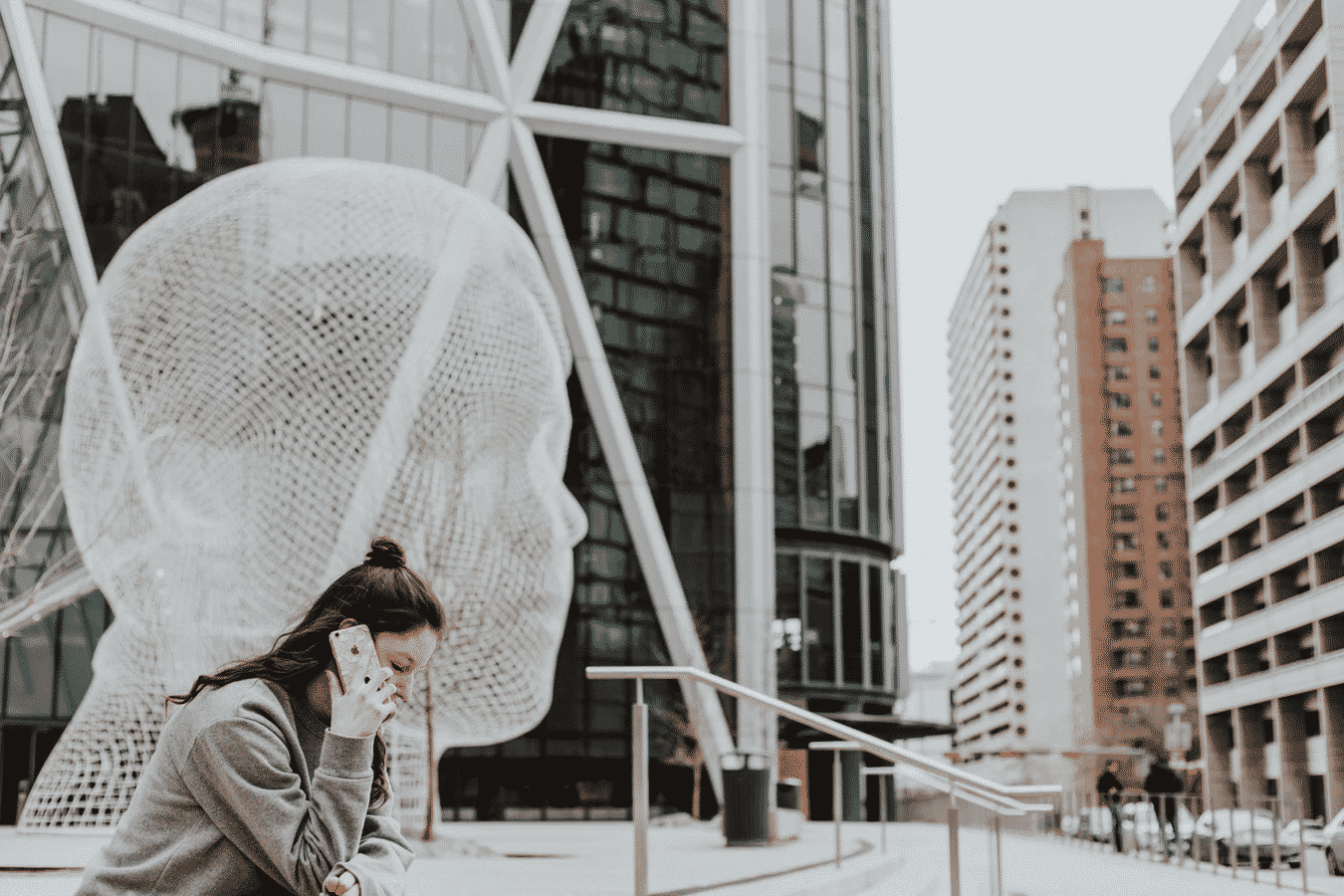On March 26, 2020, the Director-General of the World Health Organization, Dr. Tedros Adhanom Ghebreyesus, spoke at the G20 Leaders’ Summit, calling COVID-19 the “defining health crisis of our time.” He thanked the countries who have taken steps to curb the outbreak and urged them to do more. Indeed, every country dealing with coronavirus cases has enacted measures to control viral spread, including asking that citizens practice social distancing.
In the span of a few months, social distancing has taken a front seat in America’s battle to contain the COVID-19 influenza. Defined by the Centers for Disease Control and Prevention (CDC) as the act of “remaining out of congregate settings, avoiding mass gatherings, and maintaining distance (approximately 6 feet or 2 meters) from others when possible,” the practice of social distance is well known as a non-pharmaceutical method to lower the risk of infection.
Except for those working in essential functions (such as the healthcare industry and water supply resources), employees have been asked to work from home. Schools and colleges have set up online classes for their students. Bars, yoga studios, and restaurants in infected areas have closed for the indefinite future.
Social distancing certainly makes logical sense from the lens of preventing viral infection. But as a result, many find themselves isolated from the camaraderie of familial support, friendly interaction, and workplace connections. Here at VP Legacies, we’re dedicated to finding ways to help people feel connected even while practicing social distancing, such as our course, Personal Connection 101. Read on for some more ways to manage loneliness during a very trying time.
Why Social Distancing Causes Loneliness
Consistent research has shown that people of all ages, background, gender, and classes share something in common: the ability to feel a subjective sense of well-being. Close relationships in addition to work relationships factor significantly to an individual’s well-being. These relationships offer people a “we feeling,” a network of support and shared experiences that bolster one’s social identity and sense of belonging.
Without this shared community experience during the current period of social distancing, many can feel the effects of loneliness and a lowered state of well-being. Loneliness and isolation can even affect a person’s health as studies have shown a higher mortality rate associated with those who feel separated from the rest of society. Because of this, it is more important than ever to maintain relationships and seek out community during the COVID-19 outbreak. Even if social distancing calls for more creative solutions to the loneliness epidemic, there are still ways to ensure meaningful connection with those around you.
Related: Check out VP Legacies’ free course “How To Personally Connect In The Midst of A Global Pandemic,” airing live every day on Facebook and Instagram.
Making Use of Technology

Never underestimate the power of a simple phone call or warm email update. Now is an opportune time to reconnect with friends you’ve lost touch with or relatives you barely get to see. Reaching out just to wish someone a safe and healthy experience during the pandemic will brighten their day as well as yours. Email is also a professional way to catch up with work colleagues and coworkers who are working remotely.
Beyond those traditional modes of communication, technology has advanced such that we can video chat with friends and family all over the world. Applications like Facetime, Zoom, and Skype allow us to see the faces of our loved ones as well as conduct work functions through online meetings and conferences. Another way to combat loneliness is through joining an online class, connecting with fellow students and dedicated instructors. To get started, take a look at some of the courses VP Legacies has to offer here.
Improve Communication Skills
It’s more important than ever to communicate clearly, concisely, and eloquently since we can’t engage directly with others. Tapping into your desires, needs, and thoughts and expressing them fully can be challenging but well worth the effort. By improving your communication skills, your conversations in person and online can become more authentic and rewarding and help others open up as well.
Taking that step toward improving your connection skills is an empowering course of action. In addition to deepening relationships, improved communication methods will be key in addressing your personal and professional goals. For learning how to advance your powers of personal connection, try joining VP Legacies’ course Personal Connection 101 today.
Taking Technology Breaks

Studies show that too much screen time can fry your mental circuits, which leads to antsy feelings of anxiety and unrest. Ever stay up too late looking at your phone and then find yourself staring at the wall because you can’t sleep? It’s likely you’ve gotten way too stimulated by both the light from your phone as well as all the content your brain is still processing.
Taking a break from technology can be great for your body in many ways. First, putting your phone away an hour before sleep can help you get a better night’s rest. A screen time-out is also great for letting your fingers, wrists and shoulders relax. Too much typing and smartphone manipulation can wreak havoc on your upper body’s muscles. Finally, putting down your laptop or phone and stepping outside for some fresh air might be just what the doctor ordered. Your eyes get a rest and a few deep breaths may revive you from the monotony of staying indoors all day.
A walk around the neighborhood can work wonders for your mood. Just make sure to maintain a six foot distance from anyone passing you by. Social distancing, remember?
Related: Social Distancing and Today’s Loneliness Pandemic
Engaging in Multiple Communities
Human beings are amazingly resilient when it comes to disasters. We have the fantastic advantage of technology at our fingertips and a quick search on the Internet will show you communities upon communities of people connecting in the virtual space. There’s social media, sure, but there’s so much more.
Beyond Facebook groups and Instagram Live, there are scores of fitness and yoga communities online tailoring the lesson to an at-home workout. By video chatting with a friend on your phone and setting up a yoga class on your respective laptops, you get the added perk of chatting during class without disrupting the teacher. Those with hobbies are also in good company; knitting, singing, illustrating, and painting lessons are all available online and present a fun creative outlet for those that need it.
People seeking ways to improve their soft skills while at home can also find many opportunities online. eLearning resources abound on the Internet and VP Legacies is at the forefront of educational technology.
It’s Okay to Feel Lonely Sometimes

It’s important not to seek ways to escape from loneliness or solitary thoughts. The very act of feeling lonely is divinely human and be assured, you’re not alone. Remember to practice empathy for yourself and give yourself space to express your feelings through this experience.
Most are all too familiar with the feeling of loneliness and it’s easy to fall into addictive or enabling behavior during a period of isolation. But keep in mind it’s our myriad experiences that make us stronger and more caring as a whole. You’re better able to connect with others and offer them solace and empathy if you also understand what it’s like to feel lonely. In short, your difficult experience may be the key to connecting meaningfully and compassionately with a loved one.
Related: Why Empathy In The Workplace Matters
Build a Strong Relationship With Yourself
Numerous studies have shown that “chronically happy people” are optimistic, tend to like themselves, and feel empowered rather than helpless about their situation. Thus, those with a good amount of self esteem, who feel they have the power to improve their lives, and have positive outlooks such as “when I undertake something new, I expect to succeed” are more likely to handle stress better and live longer lifespans. On the opposite end of the spectrum, those who felt less empowered in their situation, for example, jail prisoners and residents in nursing homes, were less likely to rate high on a subjective well being scale.
Even if you feel like a prisoner in your own home while practicing social distancing, there are many opportunities to take control of the situation and transmute isolation into self care and self improvement. Developing a meaningful relationship with yourself will help you become a better friend, family member, and colleague as well as improve your own state of well-being. Start with VP Legacies’ powerful course “How To Build A Strong Relationship With Yourself” and embrace self empowerment today.
Conclusion

Don’t forget that pursuing online learning or joining an online community can be fulfilling as well as affordable. Start your personal connection journey today with VP Legacies’ free course “How To Personally Connect In The Midst of A Global Pandemic,” airing live every day on Facebook and Instagram.
We hope this post sheds some positive light on your social distancing experience. Though it is a challenging time for all, we are lucky to have resources and technology to bolster our relationships with others as well as ourselves. Taking advantage of the many ways to combat loneliness such as those listed above will be instrumental in maintaining your health, sense of well being, and overall happiness.

